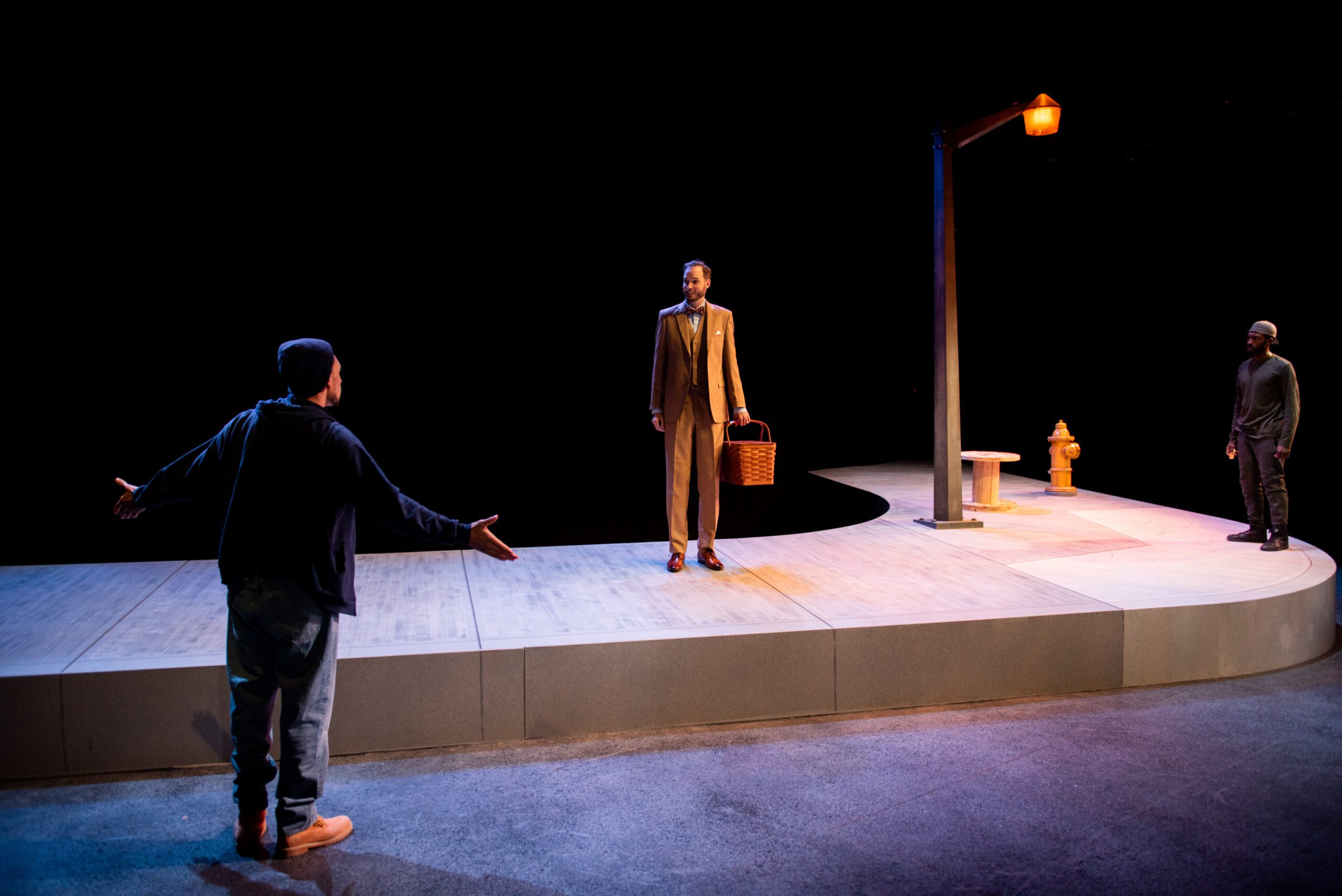You’re Not Helpless, You’re Comfortable
One of the characters in Antoinette Nwandu’s play, Pass Over, claims to feel helpless at the end of the piece. I’ll let you see the show to discover for yourself who says it. When I first read the piece that particular moment stood out to me because of how familiar the dialogue felt. Hearing a white body declare ‘helplessness’ as some kind of excuse or explanation as to why Black people are seen and treated as sub-human. There is nothing they can do, they don’t know where to start, it’s all just so…*SIGH*. And then on with their daily lives, they go without making any actual attempts to change. Why? Because they are comfortable. I feel like I’ve been seeing a lot of theatre that feeds into people feeling ‘comfortable.’
But I don’t think that’s what art is about. I actually think it’s about feeling tremendously uncomfortable. I want to be unsettled. I want chaos. This is how we change the world. This is how we stop feeling helpless.
I was first attracted to theatre and live performance in high school because of its ability to make a group of people in a specific space at a specific time feel something. To move people. The word ‘move’ implies a transformation of energy, the unsettling of atoms. That’s why I produce theatre. Pass Over unsettles the shit out of your atoms. That’s why I love it. That’s why Philip Akin (Obsidian’s Artistic Director, and the Director of Pass Over) chose it for the season. And when you work in an office with Philip, sitting across from him, seeing him constantly challenge everything around him—including yourself—you start to look at things a little differently. I think Toronto audiences will see this show and have a moment of ‘hard truth’ with themselves. Pass Over already has a track record for stirring the pot with two controversial storylines in the States.

Mazin Elsadig and Kaleb Alexander in Pass Over. Photo by Cesar Ghisilieri.
When Pass Over premiered in Chicago in June 2017 Hedy Weiss’ review in the Chicago Sun-Times was called out and condemned by the Chicago Theatre Accountability Coalition. In the review, Weiss criticized the way the white cop was depicted and stated that Nwandu should have focused more on Black-on-Black crime. The indie theatre community stood against it, calling for theatres to stop comping her. Some did, some said nothing, and the Chicago Sun-Times stood by her throughout. Nwandu wrote her own response—titled ‘When Critics Don’t Like Their Reflection’—speaking to the larger issue at hand and stating that the review “perpetuates a toxic discourse in which black lives do not matter and white lives remain unburdened by the necessary work of reckoning with white privilege.” Although she was let go from the Chicago Sun-Times (apparently for a different reason), she was soon picked up by PBS’ WTTW and is still reviewing. No surprise that she was able to find a publicly funded network to support her opinions.
Just a few months ago in Los Angeles, a production of Pass Over at Echo Theatre Company was cancelled days before opening after the firing of the director (a Black woman) by the company’s Artistic Director (a white man). The company released the statement, “Pass Over is not going to open due to internal artistic differences that cannot be reconciled.” After director Deena Selenow was fired the cast of the show along with the design team withdrew from the project and stood by the side of Selenow. It didn’t take long for Nwandu, herself, to pull the rights.
And now here we are, about to open Pass Over in Toronto. When I asked Philip how he thinks Toronto audiences will respond, he chuckles; like he’s watching somebody he cares about getting knocked out by Muhammed Ali, and it’s kind of funny.
Pass Over, I dare say, will be one of the most uncomfortable pieces of theatre to hit Toronto stages this decade. Obsidian has never been afraid of taking risks and going to uncomfortable places. It’s been an exciting environment to develop in as a theatre artist, I must admit. It’s because of this that I’ve been starting to think more about the programming choices of other theatre companies; what their rationale probably is, what their ultimate goal is, unchecked privilege and bias, etc. What Artistic Directors program is a choice, and that choice speaks to their personal values and priorities. If they value comfort, and they’re white, then odds are their comfortable season doesn’t have any Black pieces. Or, on the rare occasion that they do, it tends to be a piece that feeds into their self-imposed sense of putative helplessness. It’s one where they are not presently implicated in the piece (like slave plays, set in a bygone era of antique racism) or it’s tame and allows the audience to escape unscathed.
You probably heard about what happened the other day at the production of The Shipment by Young Jean Lee, where a white woman got up mid-show to heckle and give the finger to the Black performer on stage, Omari Newton. Newton, who was just here in Toronto for the Angélique in April, stated that this “spoke to exactly the kind of privilege we want to address in the show.” I love it when this happens. It exposes humanity. It exposes how far some (white) people will go to preserve their comfortability.

Kaleb Alexander and Mazin Elsadig in Pass Over. Photo by Cesar Ghisilieri.
I guess I’ve got one burning question, along with a follow-up question (okay, so two questions).
First question: Who gets the privilege of being comfortable in the audience of the show? I think we know the answer. Each of these examples has been instances where white people have been uncomfortable with Black work.
Follow-up questions (alright, so I lied about it just being two questions): As Black artists, do we want white audiences to be comfortable with our work? Is that the ultimate goal, to seek their approval? Or do we want to continue to challenge them and invite them into the discomfort we have been wrestling with for generations?
So back to the idea of helplessness—if you’re still with me. When I attend theatre conferences where I hear companies speak about the absolute struggle to bring in emerging Black artists, and then months later these same companies—some of them 20 times larger than us—ask for Obsidian to send money to pay for their Black Assistant Director, I wonder. I wonder if the white programmers and the people who hold that power understand the resources they have and if they are aware that they are actively choosing not to put those resources towards Black artists because it’s not comfortable for them. It’s not a value. They aren’t helpless. They actually just don’t care, and they’re comfortable that way. We aren’t their priority, and that’s fine because they aren’t ours. We’re just open about it.
Pass Over puts audiences in an uncomfortable position, and I think that’s necessary. Sometimes the people who have been comfortable the longest need to be uncomfortable for a change.









Comments